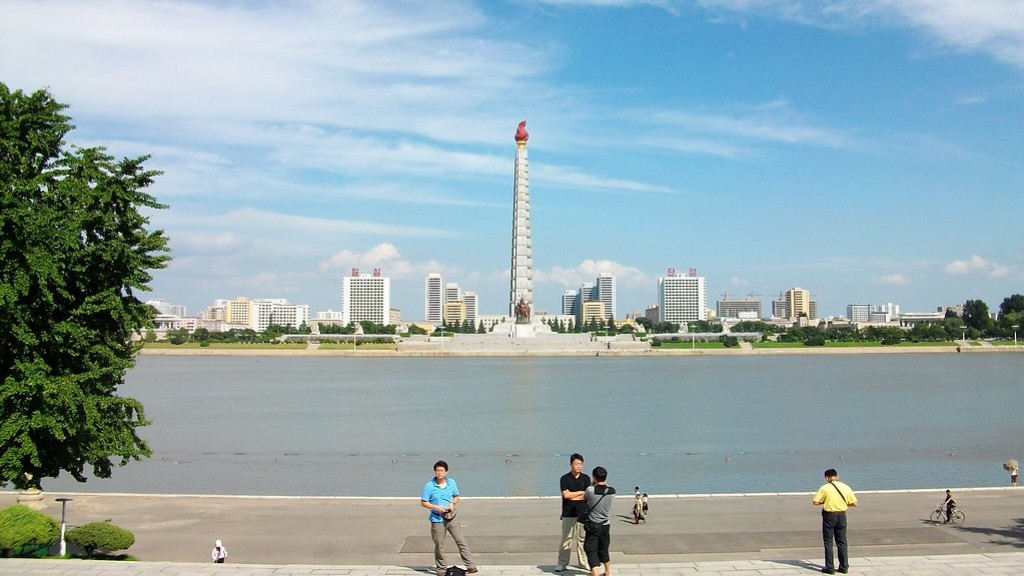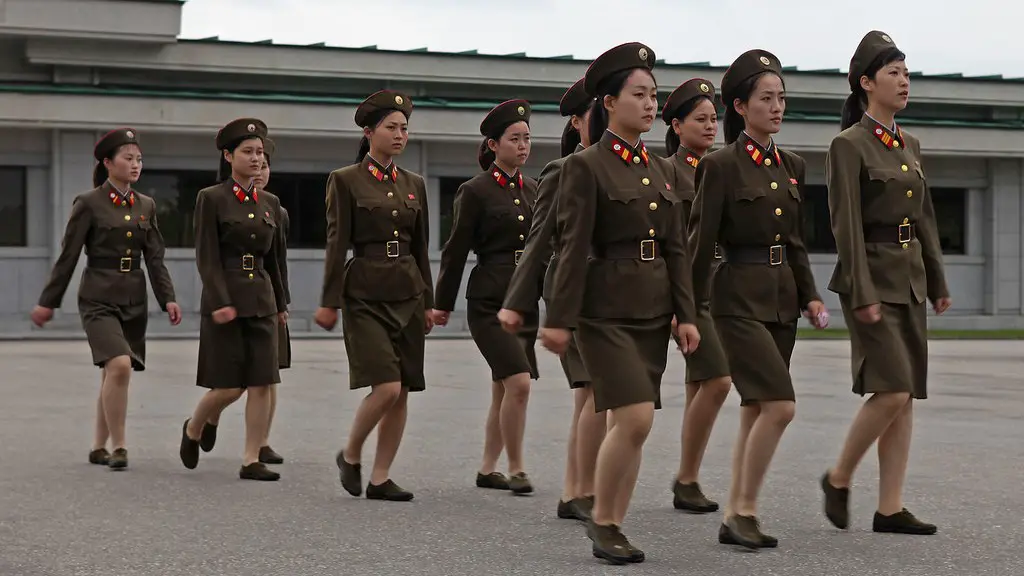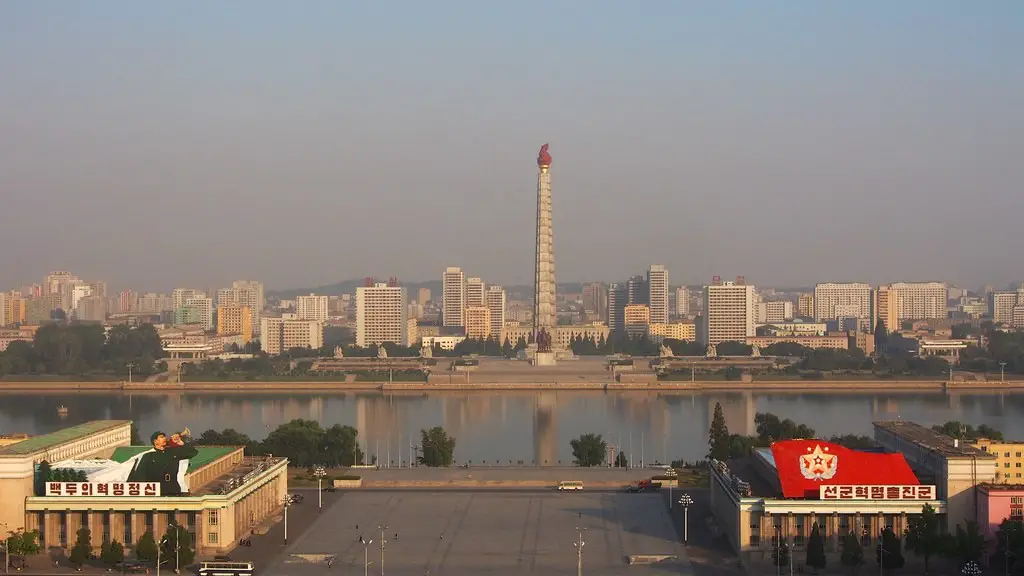The idea that economic sanctions are a useful tool to pressure recalcitrant states into good behaviour often appears to be taken as gospel in foreign policy circles. There is no doubt that some countries, including Iraq and Iran, have ended up on the negotiation table due in large part to economic sanctions. North Korea however has been a different case, with little in the way of results to show for years of UN-mandated economic sanctions. This raises the question as to why economic sanctions don’t work on North Korea?
One reason that economic sanctions are often ineffective with North Korea is that China and Russia, two of the five permanent members of the United Nations Security Council, have blocked efforts in the UN to impose harsher sanctions. According to Andrei Lankov of Kookmin University in Seoul, North Korea’s neighbours have “economically kept the regime afloat with fuel and food shipments and military component deliveries”. This has allowed elites in North Korea to continue to remain in power and insulate them from the effects of sanctions.
Another reason that sanctions often fail to yield results in North Korear is that they are implemented too leniently. This has been most visible with the UN-imposed arms embargo on North Korea which has been enforced weakly by Japan and South Korea. The lack of enforcement has meant that North Korea has managed to secure a steady stream of military supplies from Russia, with multiple reports of Russian oil tankers being used to smuggle military equipment. The failure to enforce the UN arms embargo has allowed North Korea to continue to develop its military capabilities.
Despite the failure of economic sanctions to pressure North Korea into changing their policies, there are other avenues open. According to Thomas Countryman, former Assistant Secretary of State for International Security and Nonproliferation, the greatest chance of success in dealing with North Korea is to reduce the country’s isolation by offering incentives for it to open up. This could include diplomatic talks and offers of development aid, which could be conditional on a reduction in hard-line policies by the regime.
Ultimately, however, North Korea’s leadership has invested too heavily in its nuclear capabilities and feels strongly that nuclear weapons are essential for its survival. As a result, it is unlikely that North Korea will voluntarily relinquish its nuclear weapons in exchange for economic incentives or even under the threat of military action. As such, it is unlikely that economic sanctions alone will bring about lasting change in North Korea.
Cultural Influences
Cultural influences play an important role in shaping North Korea’s attitude towards economic sanctions. North Korea has a long history of resisting attempts to interfere in its internal affairs and its leaders are very protective of their independence. This has led to a feeling among North Korean leaders that their country can, and will, withstand outside pressure and continue to exist, despite efforts to isolate the country.
It is also important to note that the population of North Korea has experienced a great deal of hardship in recent years, with decades of economic and political stagnation leading to broad public disillusionment with the government. This has led to a greater resilience to economic sanctions, as the public has come to accept life under difficult economic circumstances as the status quo. As such, even the most severe economic sanctions may not be enough to persuade North Korea to change its stance.
Human Cost
The long-term effects of economic sanctions on North Korea have been devastating. According to the United Nations, North Korea has the lowest GDP per capita of any country in the world, and its GDP has failed to grow in the past decade. This has had a serious impact on the population, particularly in terms of health and education. According to the United Nations, malnutrition is rampant and access to clean water and sanitation is limited, with experts estimating that the situation has only worsened in recent years due to the effect of economic sanctions.
Further, economic sanctions can have a significant psychological impact on the population, with increased desperation and a greater sense of isolation from the world. Without access to outside commodities, North Koreans have become increasingly susceptible to propaganda from the government, which has allowed the regime to further consolidate its grip on power.
International Opinion
The failure of economic sanctions to effectively pressure North Korea into accepting change has led to a significant shift in international opinion regarding the efficacy of sanctions. According to Thomas Pickering, former US Under Secretary of State for Political Affairs, economic sanctions are becoming less effective in global negotiations and diplomatic efforts must be stepped up to engage North Korea directly.
Leaders in the region are also taking action to reach out to North Korea, with South Korean President Moon Jae-in opening a communication channel between the two nations. President Moon’s approach has focused on reducing tensions and finding areas of cooperation, in order to make it possible for the two sides to reach a peaceful solution.
The recent summit between the US and North Korean leaders in Singapore has further raised hopes that a peaceful solution may be achievable. Despite US President Donald Trump’s hardline stance on North Korea, the summit signals a willingness to negotiate and move away from confrontation. The next few months will be telling as to whether a peaceful solution can be achieved.
North Korean Technological Advances
North Korea has made significant advances in its missile and nuclear weaponry in the past few years. In 2017, the country conducted its sixth and most powerful nuclear test. It also successfully tested intercontinental ballistic missiles that could potentially reach the US mainland. This has raised fears in the region that North Korea could use its newfound capabilities to launch a nuclear attack.
Further, North Korea’s nuclear ambitions have led to a strengthening of its military forces, giving it a much larger army than South Korea. This has allowed North Korea to threaten its neighbour without fear of retaliation and raised the possibility of war in the region.
In spite of the failure of economic sanctions to bring about a change in behaviour, North Korea’s rapid technological advances have made it clear that a more sustained approach is needed in order to deal with the regime. Without a concerted effort from the international community to address North Korea’s nuclear ambitions, the threat it poses to the region will continue to grow.
Leaders of North Korea
The leaders of North Korea have long maintained a policy of brinkmanship and aggression in order to safeguard the regime and extend its power. North Korean leader Kim Jong-un has continued to take an uncompromising stance in foreign policy matters and has shown a willingness to resort to extreme measures in order to maintain his power.
Kim Jong-un further benefits from the fact that his father Kim Jong-il, who was in power from 1994 to 2011, was successful in maintaining his grip on power despite the economic hardship caused by economic sanctions. Kim Jong-un has thus been able to recreate his father’s strategies, brushing aside UN efforts to pressure the regime into submission and using economic hardship as a means of controlling the population.
As a result, it appears that Kim Jong-un is quite content to continue the policies of his father and take a hardline stance against foreign interference. This has led to a failure of economic sanctions to pressure North Korea into changing its stance, as the leadership does not believe that it has anything to lose.
International Humanitarian Aid
The failure of economic sanctions to bring about meaningful change in North Korea has also led to a greater focus on providing humanitarian aid to the population. Despite the UN’s efforts to impose economic sanctions, the international community has continued to provide essential aid to North Korea’s most vulnerable populations.
In 2018, the UN launched a $111 million appeal for North Korea, which focused on providing humanitarian aid for areas that are particularly vulnerable to poverty, hunger, and disease. This is in addition to the regular food aid and other development initiatives that the UN is providing to North Korea.
Despite these efforts, the positive effects of humanitarian aid will only be limited if economic sanctions are not effectively enforced. Without a concerted effort from the international community to ensure that economic sanctions are strictly enforced, the long-term effects of the UN’s humanitarian relief efforts will be limited.
Therefore, in order for humanitarian aid to be effective, it must be complemented by a clear strategy for effective enforcement of economic sanctions. This is the only way to ensure that economic sanctions are not used as a means to gain leverage over North Korea and that their effects are felt by the population.





